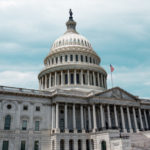How can Congress help prevent future pandemics?
As the U.S continues to recover from COVID-19, a handful of legislators introduced bills that would establish a bipartisan commission to investigate the circumstances that led to the pandemic and the national response thereafter.
Should a commission be established, it must acknowledge how federal management issues—leadership strategies, technology use, workforce capacity, and cross-agency and cross-sector collaboration—affected the nation’s response. These issues are key to a comprehensive and useful review.
Earlier this year, Sens. Bob Menendez, D-N.J., and Susan Collins, R-Maine, introduced the National Coronavirus Commission Act of 2021. Reps. Tom Malinowski, D-N.J., and Mario Diaz-Balart, R-Fla., introduced a companion bill in the House, and Rep. Bill Posey, R-Fla., introduced the PREPARE Act to stand up a similar commission.
Each of the proposed bills would create a commission consisting of ten members that are considered experts in a variety of fields necessary to evaluate the nation’s management of the pandemic, such as public administration and intelligence gathering.
Sens. Menendez and Collins are working to build support for their proposal. In June, Sen. Menendez held a press conference with frontline health care workers and families who lost loved ones to COVID-19 to encourage his colleagues to move quickly on creating a commission. In a New York Times op-ed, he joined Sen. Collins to emphasize that a national review of the country’s pandemic response is vital to protect the American people from future health crises.
If an independent and bipartisan commission is established—and it just might, with Congress’ help—it will be essential to identify how leadership initiatives, technology, workforce capacity, and cross-agency and cross-sector collaboration impacted government’s ability to serve the public during the pandemic.
These areas can help create a roadmap for government to better prepare for and respond to the next pandemic by highlighting important lessons learned. And there are plenty of examples to look at.
COVID-19 disrupted federal, local, state and tribal governments’ operations. When stay-at-home orders were issued in March 2020, leaders at every level of government were forced to manage and coordinate a diverse remote workforce in a matter of days. For instance, the Department of Transportation became 100% telework-ready in just five days by expediting the acquisition process and distributing 15,000 laptops to employees.
Federal employees providing essential services to people across the country had to identify new approaches for delivering those services effectively in a physically distant environment. This changed how government interacted with the public and required investments in new technologies, such as the Department of Veterans Affairs adopting chatbots to respond to the overwhelming number of new telehealth inquiries.
On the hiring front, the Department of Health and Human Services recruiters used “resume mining” to identify potential applicants for jobs at the Centers for Disease Control and Prevention to expand the workforce and keep up with the flood of new service requests the pandemic created.
The pandemic also exposed new opportunities for collaboration. For example, Evidation Health partnered with the Biomedical Advanced Research and Development Authority to launch a pilot program to create an early warning algorithm for COVID-19 infection in high-risk populations.
These are but a few of the examples that a new COVID-19 commission could draw upon to inform the nation’s future pandemic response. If Congress creates a new commission, it must identify the pitfalls and challenges that inhibited our response to COVID-19—and the innovative ways that government worked to overcome them. Highlighting these best practices is critical to preventing future pandemics and protecting the health and well-being of future generations.
